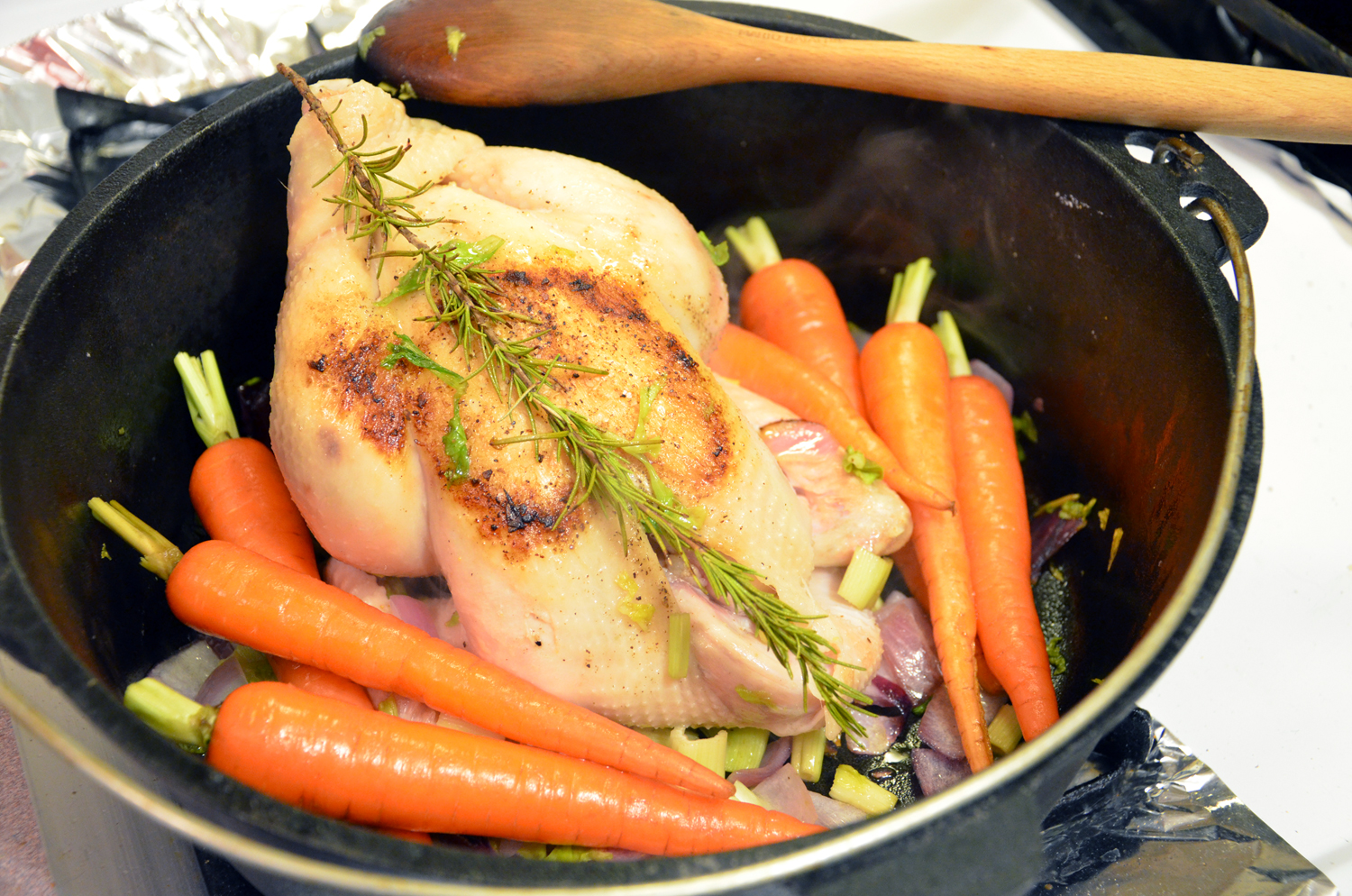Food fight: Does healthy food have to be more expensive?
Last month a food fight erupted when Anthony Bourdain, chef, author, and host of the Travel Channel's “No Reservations”, was asked by TV Guide to give his opinion of a handful of celebrity chefs and cooks. Of cooking show host Paula Deen, he criticized how unhealthy her food is, saying,  “If I were on at seven at night and loved by millions of people at every age, I would think twice before telling an already obese nation that it's okay to eat food that is killing us.”
“If I were on at seven at night and loved by millions of people at every age, I would think twice before telling an already obese nation that it's okay to eat food that is killing us.”
Deen responded, saying, “…not everybody can afford to pay $58 for prime rib or $650 for a bottle of wine…I cook for regular families who worry about feeding their kids and paying the bills…It wasn't that long ago that I was struggling to feed my family, too.”
Food for the Working Class
You can click the links to read their accusations about “unholy connections with evil corporations,” food that sucks, and lack of charity, but what interested me was what was being said about the was healthy, she countered that it was for the working class. Bourdain, for his part, was accused of “culinary elitism” in the New York Times. Columnist Frank Bruni writes:
“[Deen is a champion] of downscale cooking that's usually more affordable and easier to master” and that his own personal preferences, “…don't entitle me, Bourdain or anyone else who trots the globe and visits ambitious restaurants — the most casual of which can cost $50 a person and entail hour-long waits — to look down on food lovers without the resources, opportunity or inclination for that.”
TV Guide knew what they'd get when they asked him to weigh in on celebrity cooks from The Food Network — that's no surprise. What is surprising to me is the accusation of elitism and the notion that poor people can't afford to cook healthier food.
Of the former, I have to wonder if Deen or Bruni have ever seen Bourdain's show. He rarely goes to fancy restaurants in “No Reservations”, preferring the following kinds of eateries:
- Street vendors
- Markets
- Pubs
- Diners
- Cafes
- Meals cooked by his local guide's grandma (As an independent traveler without a personal guide, those family meals make me green with envy.)
Of the latter, I wondered if it's really a matter of affording the ingredients. To be clear, I'm not arguing that poor people can afford organic food from Whole Foods or spend hours in the kitchen making a gourmet meal. But if you're planning to cook one of Deen's recipes, you have to purchase ingredients. Preparing them in an unhealthy way (fried, tons of sugar, unnecessary gobs of butter) doesn't save money over grilling, broiling, or steaming.
Bruni also argued that “when Deen fries a chicken, many of us balk. When the Manhattan chefs David Chang or Andrew Carmellini do, we grovel for reservations and swoon over the homey exhilaration of it all.” But Bourdain's point was that millions tune into Deen and buy her books, while most people have never heard of David Chang. She has a massive audience, and if her audience is the working poor, as she implies, who are more likely to be obese, his statement seems all the more valid.
Working With What You've Got
While everyone was weighing in on the Tony vs. Paula debate, Bourdain was on vacation with his family. Later he addressed the topic in a any of the world's mother cuisines — French, Italian, or Chinese — originated with poor, hard-pressed, hard-working farmers and laborers with no time, little money, and no refrigeration.
…French cooking, we tend to forget now, was rarely (for the majority of Frenchmen) about the best or the priciest or even the freshest ingredients. It was about taking what little you had or could afford and turning it into something delicious without interfering with the grim necessities of work and survival. The people I'm talking about here didn't have money or time to cook…the notion that hard-working, hard-pressed families with little time and slim budgets have to eat crappy, processed food or that unspeakably, proudly unhealthy ‘novelty dishes' that come from nowhere but the fevered imaginations of marketing departments are — or should be — the lot of the working poor is nonsense…”
Mac and cheese is a good dish, he says, and deep-frying it doesn't make it better or more affordable.
Kentucky Fried Chicken and the $10 Challenge
This debate reminded me of a 2008 KFC commercial about the “KFC $10 challenge”. A family goes into a grocery store to recreate a KFC meal, and when the grocery bill winds up being more than $10, the cost of the 7-piece meal from KFC, the mom announces that they're going to KFC instead.
Grist writer Kurt Michael Friese took KFC's challenge. He went to a local supermarket and bought hormone-free chicken and the ingredients for biscuits, mashed potatoes, and gravy. His results:
- The KFC meal was $10.58, which included Iowa state taxes.
- He made the same meal at home for $7.94.
- When he used more organic ingredients, the home-cooked meal cost $10.62.
Friese notes that while it may take more time than a fast food drive-through, J.D.'s review of Mark Bittman's “101 minimalist meals” article.)
I want to reiterate that I'm not talking about people so poor that they can't afford a $7.94 meal. I'm more curious about why cooking at home is given the rep of being more expensive (clearly it's not) and why cooking healthier food is considered out-of-reach for the working poor. Obviously KFC has a good reason to mislead American families, but how can those in the culinary world argue that people without means are “consigned to overloads of animal fat” (as opposed to those who simply choose to eat it), as Bruni wrote?
What do you think? Is it a matter of time, convenience, know-how, or availability of good ingredients? I'd especially love to hear from those of you who manage to eat well on a strict budget.
Become A Money Boss And Join 15,000 Others
Subscribe to the GRS Insider (FREE) and we’ll give you a copy of the Money Boss Manifesto (also FREE)

